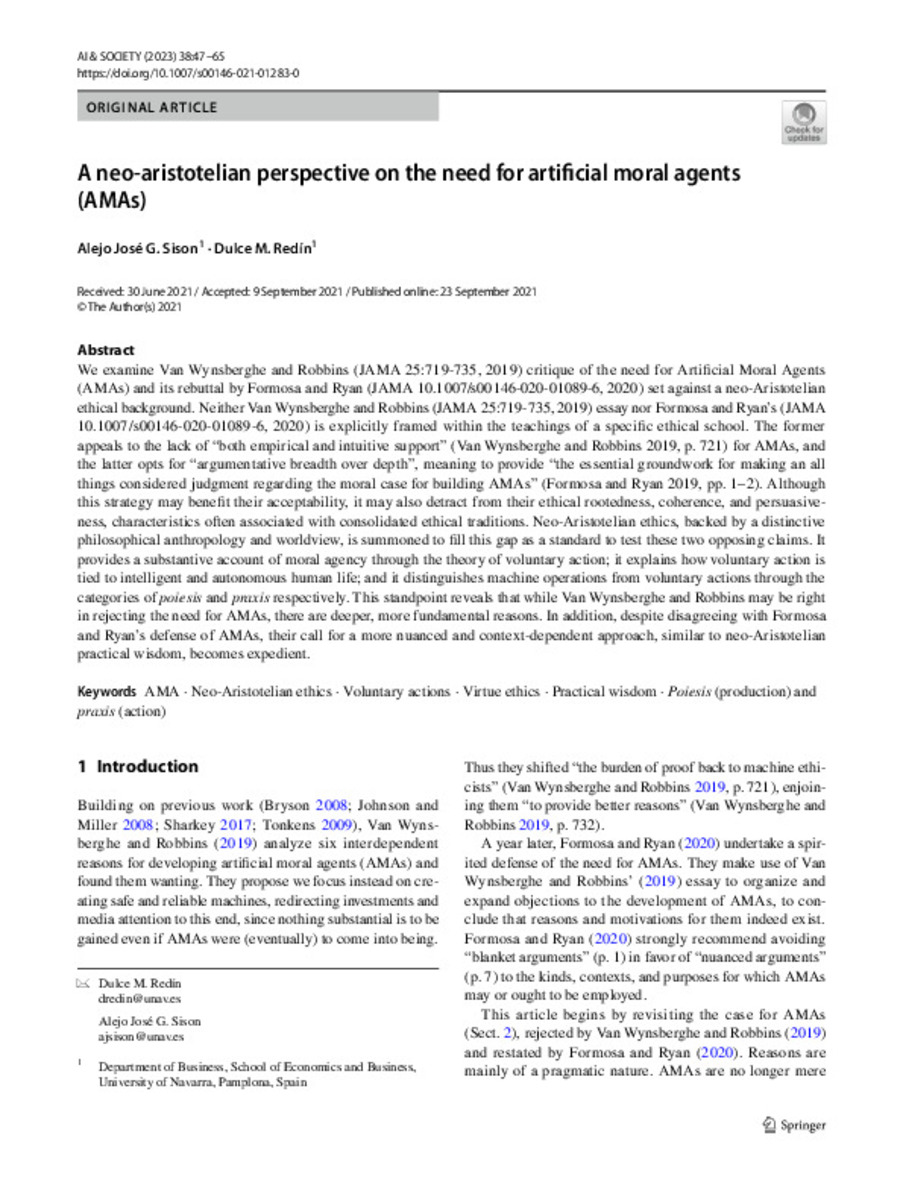A neo-aristotelian perspective on the need for artificial moral agents (AMAs)
Palabras clave :
AMA
Neo-Aristotelian ethics
Voluntary actions
Virtue ethics
Practical wisdom
Poiesis (production) and praxis (action)
Fecha de publicación :
2021
Nota:
This article is licensed under a Creative Commons Attribution 4.0 International License
Cita:
Sison, A.J. (Alejo José); Redin, D. (Dulce). "A neo-aristotelian perspective on the need for artificial moral agents (AMAs)". AI & Society. (38), 2021, 47 - 65
Aparece en las colecciones:
Estadísticas e impacto
0 citas en

0 citas en

Los ítems de Dadun están protegidos por copyright, con todos los derechos reservados, a menos que se indique lo contrario.








